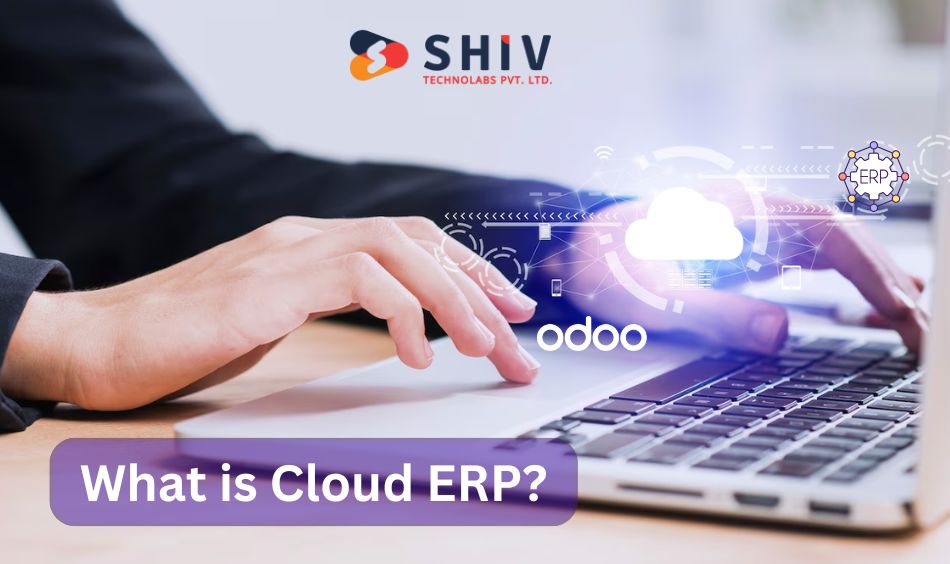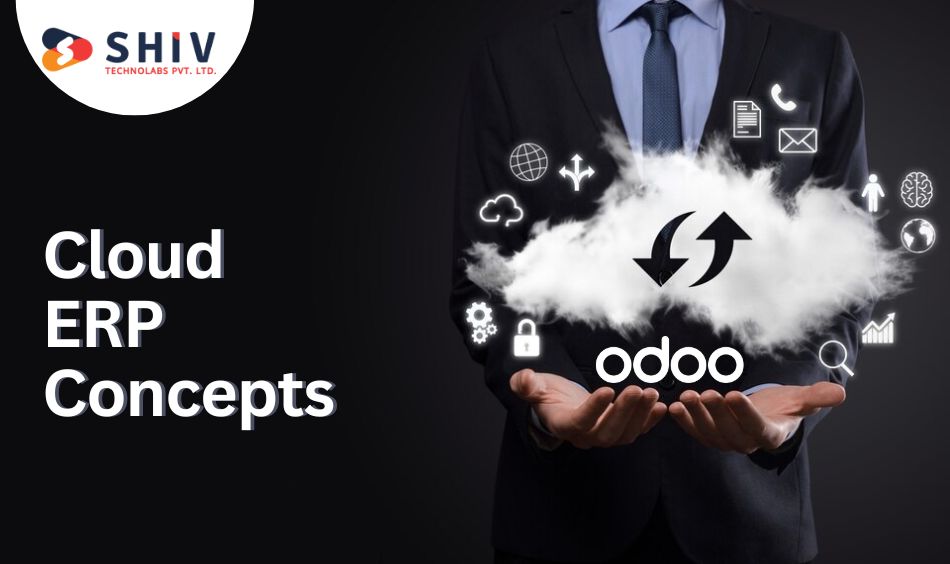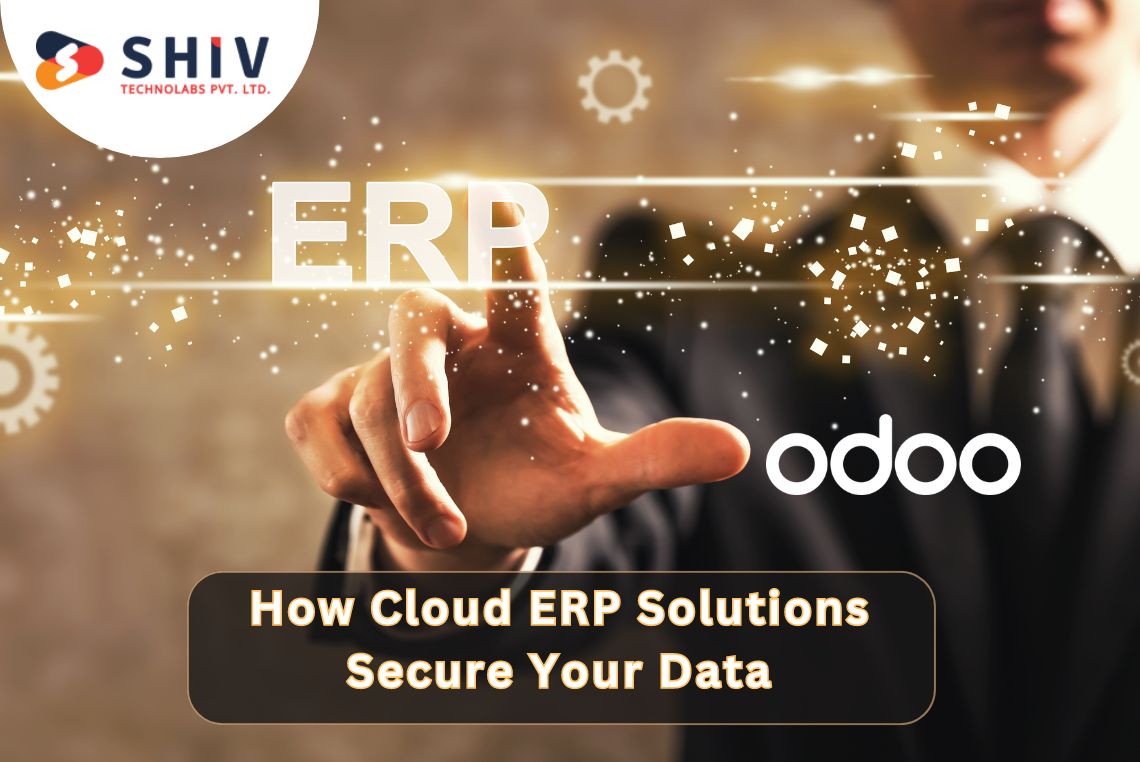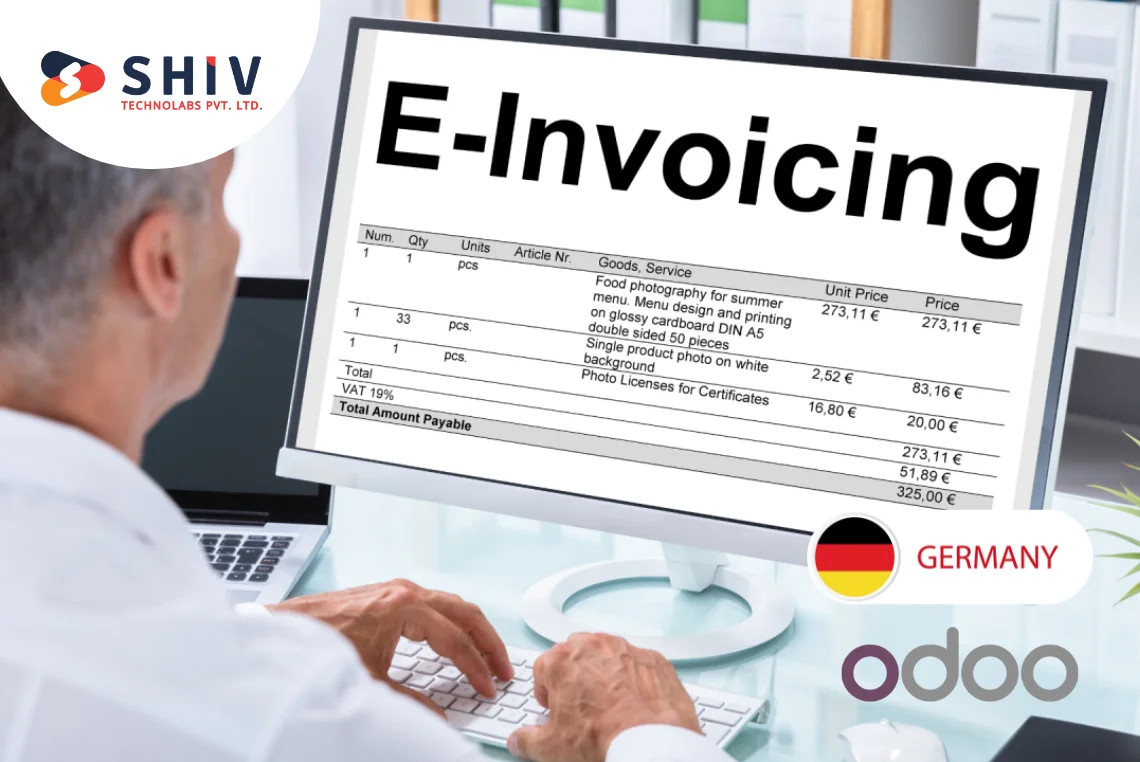Table of Contents
In today’s digital landscape, data security is paramount for businesses of all sizes. Protecting sensitive information from breaches and ensuring compliance with data protection regulations are critical tasks. Cloud ERP solutions, such as Odoo Cloud ERP, offer robust mechanisms to safeguard your business data. The adoption of cloud ERP is increasingly popular among enterprises due to its numerous advantages in data security, cost efficiency, and operational effectiveness. Businesses in Germany, like many around the world, are turning to cloud ERP solutions to enhance their data security posture. We will explore how cloud ERP solutions, specifically Odoo ERP solutions, enhance data security for businesses, including the benefits and features they offer.
According to a report by Gartner, the global cloud ERP market is expected to reach $40.5 billion by 2025, driven by the increasing need for real-time data access and the growing importance of data security. The same report indicates that organizations leveraging cloud ERP solutions have seen a 30% reduction in IT costs and a 20% increase in overall operational efficiency. These statistics underscore the significant benefits that cloud ERP systems offer, making them an attractive option for businesses looking to streamline their operations and enhance data security.
Furthermore, a survey conducted by IDC revealed that 60% of businesses consider data security as their primary reason for adopting cloud ERP solutions. This is particularly relevant in Germany, where stringent data protection regulations like GDPR mandate robust security measures. Companies that have implemented cloud ERP solutions have reported a 50% reduction in data breaches and a substantial improvement in compliance with regulatory standards. These facts highlight the critical role of cloud ERP systems in safeguarding business data and ensuring compliance with industry regulations.
What is Cloud ERP?

Cloud ERP is an enterprise resource planning system hosted on the cloud, allowing businesses to access their applications and data over the internet. Unlike traditional on-premise ERP systems, cloud ERP solutions like Odoo Cloud ERP provide real-time data access, scalability, and reduced IT overhead. These systems integrate various business processes into a unified platform, simplifying operations and improving data visibility. The shift from traditional ERP to cloud ERP is driven by the need for greater flexibility, security, and efficiency in managing business operations. Understanding what cloud ERP entails is the first step towards recognizing its potential benefits for your business. Additionally, Odoo customization allows businesses to adjust the ERP system to their specific needs, further increasing its effectiveness. Cloud ERP systems are designed to support a wide range of business functions, including finance, supply chain, manufacturing, and human resources.
# Definition and Core Functions of Cloud ERP Systems
- Cloud ERP systems are software solutions hosted on remote servers and accessed via the internet.
- They integrate key business processes such as accounting, procurement, project management, and supply chain operations.
- Cloud ERP provides real-time data and analytics, improving decision-making and operational efficiency.
# Differences Between Traditional ERP and Cloud ERP
- Traditional ERP systems are hosted on-premises, requiring significant upfront investment in hardware and maintenance.
- Cloud ERP systems offer subscription-based pricing, reducing initial costs and ongoing maintenance expenses.
- Cloud ERP solutions provide greater scalability and flexibility compared to traditional ERP systems.
Types of Cloud-Based ERP Systems
Cloud-based ERP systems come in three primary forms: public, private, and hybrid cloud ERP. Each type offers unique benefits and security features suited to different business needs. Understanding the differences between these types can help businesses make informed decisions about which solution best fits their requirements.
# Public Cloud ERP
Public cloud ERP systems are hosted by third-party providers and shared among multiple tenants. This model is cost-effective and suitable for small to medium-sized businesses seeking scalable solutions without significant upfront investment. Public cloud ERP providers ensure high availability and security through economies of scale and advanced infrastructure.
# Private Cloud ERP
Private cloud ERP systems are dedicated to a single organization, offering enhanced security and customization. They are ideal for larger enterprises with specific security and compliance requirements. Private cloud ERP solutions provide greater control over data and system configurations, ensuring that businesses can tailor the ERP environment to their unique needs.
# Hybrid Cloud ERP
Hybrid cloud ERP combines elements of both public and private clouds, providing flexibility and control. Businesses can leverage the scalability of the public cloud while maintaining critical data and applications in a private cloud environment. This model allows for a balanced approach, optimizing cost-efficiency while addressing specific security concerns.
Also read : A Comprehensive Guide to Optimize Website With SEO Tools in Odoo 17
Cloud ERP Concepts

Understanding the key concepts of cloud ERP is essential for grasping how these systems enhance data security and operational efficiency. Cloud ERP systems are built on several foundational concepts that contribute to their effectiveness and security.
# Multi-Tenant vs. Single-Tenant Architectures
- Multi-tenant architectures allow multiple organizations to share the same cloud infrastructure while keeping their data isolated.
- Single-tenant architectures provide a dedicated environment for each organization, offering higher security and customization
- Multi-tenant systems are typically more cost-effective, while single-tenant systems offer greater control and isolation.
# Integration Capabilities with Other Business Systems
- Cloud ERP systems are highly scalable, allowing businesses to adjust their resources based on demand.
- Integration capabilities enhance data accuracy and operational efficiency by connecting disparate systems.
- Businesses can achieve a cohesive ecosystem, reducing data silos and improving overall performance.
# Scalability and Flexibility of Cloud ERP Solutions
- Cloud ERP systems are highly scalable, allowing businesses to adjust their resources based on demand.
- Scalability supports business growth, enabling companies to expand their operations without significant IT investment.
- Flexible cloud ERP solutions can adapt to changing business needs, providing long-term value and sustainability.
How Cloud-Based ERP Secures Your Data
Cloud-based ERP solutions employ a range of advanced security measures to protect business data from threats and breaches. These measures ensure that sensitive information is safeguarded and compliance with data protection regulations is maintained.
# Data Encryption in Transit and at Rest
- Data encryption is a critical security feature in cloud ERP systems.
- It ensures that data is protected during transmission and while stored, preventing unauthorized access and data breaches.
- Encryption protocols are regularly updated to address emerging security threats.
# Regular Security Audits and Compliance Measures
- Cloud ERP providers conduct regular security audits to identify and address vulnerabilities.
- They ensure compliance with industry standards and regulations, providing businesses with peace of mind regarding data security.
- Compliance measures include GDPR, HIPAA, and other relevant data protection laws.
# Automated Updates and Patches
- Cloud ERP solutions receive automated updates and security patches.
- This ensures that the latest security protocols are always in place, reducing the risk of vulnerabilities.
- Automated updates eliminate the need for manual intervention, streamlining the maintenance process.
# Disaster Recovery and Backup Strategies
- Robust disaster recovery and backup strategies are integral to cloud ERP systems.
- These measures ensure that data can be quickly restored in the event of a disruption, minimizing downtime and data loss.
- Regular backups and redundant data storage provide additional layers of protection.
Also read : Odoo vs. NetSuite: A Detailed Comparative Analysis
What are the Benefits of Cloud-Based ERP?
Cloud-based ERP solutions offer numerous benefits that enhance business operations and data security. These advantages make cloud ERP an attractive option for businesses looking to improve efficiency, reduce costs, and protect sensitive information.
# Cost Efficiency and Reduced IT Overhead
- Cloud ERP eliminates the need for significant upfront investment in hardware and software.
- Subscription-based pricing models reduce ongoing IT expenses and provide predictable budgeting.
- Businesses can allocate resources more efficiently, focusing on core activities rather than IT maintenance.
# Improved Accessibility and Collaboration
- Cloud ERP provides real-time access to data from anywhere, facilitating collaboration among teams.
- Remote work capabilities enhance productivity and ensure business continuity.
- Mobile access allows employees to stay connected and make informed decisions on the go.
# Enhanced Data Analytics and Reporting
- Cloud ERP offers advanced data analytics and reporting tools.
- These tools provide valuable insights into business performance, helping leaders make data-driven decisions.
- Real-time reporting ensures that businesses can respond quickly to changing market conditions.
# Simplified Compliance Management
- Cloud ERP systems help businesses manage compliance with data protection regulations.
- Built-in tools and automated processes simplify the compliance management process.
- Regular audits and updates ensure ongoing adherence to industry standards.
# Increased Operational Efficiency
- By integrating various business processes, cloud ERP streamlines operations and reduces redundancies.
- Automation of routine tasks frees up employees to focus on strategic activities.
- Improved process efficiency leads to cost savings and enhanced productivity.
# Real-Time Data and Reporting
- Cloud ERP offers real-time data access and reporting.
- Businesses can make timely decisions based on accurate, up-to-date information.
- Real-time insights support proactive management and strategic planning.
# Streamlined Business Processes
- Cloud ERP systems automate routine tasks, reducing the burden on employees.
- Streamlined processes enhance overall efficiency and effectiveness.
- Businesses can achieve higher levels of productivity and operational excellence.
# Improved Customer Service and Satisfaction
- A unified view of customer data allows businesses to deliver better customer service.
- Cloud ERP systems enable personalized interactions and faster response times.
- Enhanced customer satisfaction drives loyalty and repeat business.
# Better Decision-Making Capabilities
- Access to accurate, real-time data allows business leaders to make informed decisions.
- Data-driven decision-making supports strategic planning and business growth.
- Cloud ERP solutions provide the insights needed to stay competitive in the market.
# Flexibility and Scalability for Business Growth
- Cloud ERP solutions can scale with the business, providing flexibility to adapt to changing demands.
- Scalable solutions support business growth without significant IT investment.
- Flexibility ensures that businesses can respond to new opportunities and challenges effectively.
Conclusion
In conclusion, cloud ERP solutions like Odoo Cloud ERP play a vital role in enhancing data security for businesses. By leveraging advanced security features, regular updates, and robust disaster recovery strategies, cloud ERP systems protect sensitive business data and ensure compliance with industry standards. The numerous benefits of cloud ERP, including cost efficiency, improved accessibility, and enhanced operational efficiency, make it an attractive option for businesses looking to secure their data and drive growth.
Shiv Technolabs, a leading Odoo development company in Germany, including Odoo customization and implementation. Our team of experts is dedicated to helping businesses harness the power of Odoo ERP solutions to achieve their goals. Contact us today to learn more about how we can support your business with our cutting-edge ERP solutions.




















